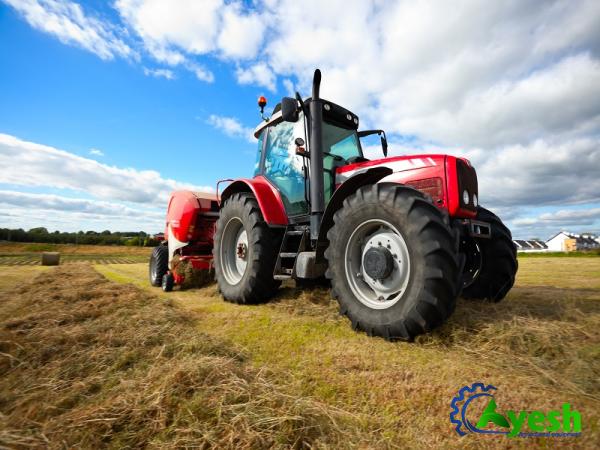As the global population continues to grow, the demand for agricultural products rises exponentially. With increased pressure to produce more food, farmers are turning to diesel as a primary source of energy for their machinery. Diesel fuel offers numerous benefits in terms of power, reliability, and efficiency. In this article, we will explore the advantages of diesel for farm use and delve into its role in shaping the future of modern agriculture. 1. Power and Performance: Diesel engines are renowned for their superior power and torque, making them ideal for heavy-duty applications in the farming industry. This robust power enables farmers to efficiently operate larger machinery such as tractors, combines, and harvesters.

.
 The torque provided by diesel engines allows these machines to pull heavy loads effortlessly, tackle challenging terrains, and complete time-sensitive tasks with ease. 2. Fuel Efficiency: Farmers are constantly seeking ways to optimize their operations and reduce costs. Diesel engines offer exceptional fuel efficiency compared to their gasoline counterparts, enabling farmers to get more work done with the same amount of fuel. Efficient fuel consumption translates to lower operating costs and increased profitability for farmers, making diesel a preferred choice for prolonged and demanding farm use. 3. Longevity and Durability: The demanding conditions in which farm machinery operates necessitate robust and reliable equipment.
The torque provided by diesel engines allows these machines to pull heavy loads effortlessly, tackle challenging terrains, and complete time-sensitive tasks with ease. 2. Fuel Efficiency: Farmers are constantly seeking ways to optimize their operations and reduce costs. Diesel engines offer exceptional fuel efficiency compared to their gasoline counterparts, enabling farmers to get more work done with the same amount of fuel. Efficient fuel consumption translates to lower operating costs and increased profitability for farmers, making diesel a preferred choice for prolonged and demanding farm use. 3. Longevity and Durability: The demanding conditions in which farm machinery operates necessitate robust and reliable equipment.
..
 Diesel engines are renowned for their longevity and durability, with many machines clocking thousands of hours without major issues. This attribute reduces downtime and maintenance costs, ultimately improving productivity and ensuring a smooth workflow on farms. 4. Versatility: Diesel fuel can power a wide array of farm machinery, making it versatile and practical for various agricultural applications. From tractors and irrigation pumps to grain dryers and milking machines, diesel-powered equipment offers immense versatility on farms of all sizes. Additionally, diesel can fuel machinery regardless of weather conditions, making it reliable even in remote locations or areas prone to power outages. 5. Environmental Considerations: The agriculture sector is increasingly aware of the importance of sustainable practices. Diesel fuel has made significant strides in reducing its environmental impact, with low-sulfur diesel becoming the standard in many regions.
Diesel engines are renowned for their longevity and durability, with many machines clocking thousands of hours without major issues. This attribute reduces downtime and maintenance costs, ultimately improving productivity and ensuring a smooth workflow on farms. 4. Versatility: Diesel fuel can power a wide array of farm machinery, making it versatile and practical for various agricultural applications. From tractors and irrigation pumps to grain dryers and milking machines, diesel-powered equipment offers immense versatility on farms of all sizes. Additionally, diesel can fuel machinery regardless of weather conditions, making it reliable even in remote locations or areas prone to power outages. 5. Environmental Considerations: The agriculture sector is increasingly aware of the importance of sustainable practices. Diesel fuel has made significant strides in reducing its environmental impact, with low-sulfur diesel becoming the standard in many regions.
…
 Additionally, advancements in engine technology have led to cleaner-burning diesel engines, resulting in reduced emissions and better air quality. As the agricultural industry continues to prioritize eco-consciousness, diesel engines have adapted to meet these demands. Conclusion: Diesel fuel has revolutionized the farming industry by providing unmatched power, performance, efficiency, and reliability. Its versatility and ability to endure the harshest farm conditions have made it the go-to choice for many farmers worldwide. As the global population and food demands continue to rise, the reliance on diesel for farm use will only grow stronger. With ongoing advancements in engine technology and the adoption of more sustainable practices, diesel fuel is set to play a pivotal role in shaping the future of modern agriculture.
Additionally, advancements in engine technology have led to cleaner-burning diesel engines, resulting in reduced emissions and better air quality. As the agricultural industry continues to prioritize eco-consciousness, diesel engines have adapted to meet these demands. Conclusion: Diesel fuel has revolutionized the farming industry by providing unmatched power, performance, efficiency, and reliability. Its versatility and ability to endure the harshest farm conditions have made it the go-to choice for many farmers worldwide. As the global population and food demands continue to rise, the reliance on diesel for farm use will only grow stronger. With ongoing advancements in engine technology and the adoption of more sustainable practices, diesel fuel is set to play a pivotal role in shaping the future of modern agriculture.










Your comment submitted.